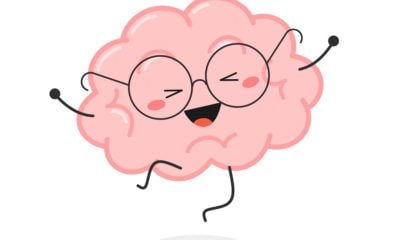What is Emotional Intelligence and How Can We Use It in Work and Life?
Understanding what emotional intelligence is and then improving yours through conscious effort can have significant meaning in your life, both professionally and personally.
Developing your emotional intelligence can make you a better leader or a better teammate at the professional level.
With friendships and romantic relationships, you can use emotional intelligence to strengthen your bond, foster deeper intimacy, improve your connection, and build a love that stands the test of time.
Improving your work life and your love life sounds great to many of us, but how do you go about increasing your emotional intelligence?
The first step is to understand what emotional intelligence is and how you can use it to improve your life.
The benefits of increasing your emotional intelligence will outweigh any discomfort in the process, and the improvement you see across multiple areas of your life will make it worthwhile!
What is emotional intelligence?
Emotional intelligence (also referred to as EQ) is the ability to comprehend, use, and handle your own emotions in positive ways.
Your emotional intelligence helps relieve stress, engage in effective communication, empathize with others, overcome life’s trials, and resolve conflict.
Emotional intelligence is the part of your brain that helps you build relationships and become more attuned with your feelings.
Emotional intelligence has a lot to do with your decision-making ability and the ability to set and achieve goals.
It is also an indicator of how successful you will be at work or school.
There are typically four characteristics that are used to determine a person’s EQ.
First, there is the ability that one has to self-manage.
This defines a person’s impulse control.
How much power do you have over your feelings and behaviors?
Can you manage your emotions in healthy ways?
The self-management attribute considers someone’s ability to take the initiative, follow through on commitments, and adaptability to change.
The second factor that is used to measure your emotional intelligence is a person’s self-awareness.
Self-aware people can recognize and name their emotions.
They can understand the effect of their thoughts and behaviors.
People with a higher level of self-awareness are more cognizant of their strengths and weaknesses and have a higher amount of self-confidence.
The third thing that is attributed to having more emotional intelligence is social awareness.
People who have high social awareness can express empathy for others because they understand other people’s emotions, needs, and concerns.
These people are good at picking up on emotional cues and feel comfortable in social settings.
Finally, emotionally intelligent people excel at maintaining relationships.
Their ability to communicate clearly causes fewer misunderstandings.
They often inspire and influence others, and people want to be around them.
They are assets to teams and can manage conflict well.
Each of these attributes has ramifications in both work and our personal lives, and tapping into them will help you succeed in both areas.
“Emotional intelligence is the ability to sense, understand, and effectively apply the power and acumen of emotions as a source of human energy, information, connection, and influence.” – Robert K. Cooper, Ph.D.
Emotional intelligence at work
Work is often more manageable when you have a high degree of emotional intelligence, regardless of your role.
A high amount of emotional intelligence can make it easier for leaders to relate to their staff and show empathy when it is needed.
Leaders also need to inspire others to follow them and pay close attention to team dynamics in order to keep a team from becoming dysfunctional.
While leadership traits like charisma, confidence, and intelligence are essential, exceptional leaders can manage others using a whole-person approach.
Rose Krivich points out that “Daniel Kahneman, Nobel Prize winner and author of Thinking, Fast and Slow, proved through his studies that people act from emotion first, rationality second.
We are emotionally driven creatures, and the ‘whole-person’ approach knows this.
Everyone in an organization is coming to the table with emotions, and these emotions are fueling their decisions.”
According to the IEDP Editorial Team, “Emotionally intelligent leaders are aware of their own emotions, and intuitively aware of the emotions of others.
They are not only willing to listen to the concerns of others but can decipher, even in silence, the emotions betrayed through facial expressions or body language.”
Suppose you aren’t in a management role.
In that case, you can probably think back and recognize which leaders had more emotional intelligence than others and how that affected your life at work.
As a team member at work, though, it is essential that you develop your own emotional intelligence and not just expect this from the leadership team.
Becoming more self-aware will help you identify your strengths and weaknesses so that you can contribute as much to your team as possible.
Showing empathy for your coworkers and managing your emotions can also help diffuse conflicts with the group.
The more cohesiveness a team can develop, the more productive it will be.
Emotional intelligence doesn’t just impact our work relationships with our peers or managers; it also influences our relationships outside of work.
“75 percent of careers are derailed for reasons related to emotional competencies, including the inability to handle interpersonal problems; unsatisfactory team leadership during times of difficulty or conflict; or inability to adapt to change or elicit trust.” – Center for Creative Leadership
Emotional intelligence with our relationships
The secret to intimate relationships that last is often related to a person’s emotional intelligence.
People are constantly changing and growing within a relationship.
Those with higher emotional intelligence are more aware of their own growth and the changes happening in their friends or romantic partners.
This awareness, and the ability to show empathy, will make you the type of partner or friend who is in tune with what the other person needs.
Empathy and sharing emotional experiences will help foster a deeper intimacy with our partners.
Mutual kindness and genuine commitment are qualities that most people search for in a relationship, and emotionally intelligent people can tap into that part of themselves.
Putting your friend’s and partners’ needs before your own is crucial to any relationship.
When you have higher emotional intelligence, you are also less likely to allow someone to take advantage of your kind heart.
Recognizing and naming your emotions is another emotionally intelligent ability that will help you grow stronger in your relationships or know when one is no longer working.
People with a high EQ are less likely to confuse lust and love or deep friendship for something more.
They are also more likely to have open communication lines and not ignore negative emotions that erode a relationship when left to fester.
“Too often we underestimate the power of a touch, a smile, a kind word, a listening ear, an honest compliment, or the smallest act of caring, all of which have the potential to turn a life around.” – Leo Buscaglia
Ways to increase your emotional intelligence
Like any soft skill, there are ways you can improve your emotional intelligence.
Start by taking stock of your reactions to situations that involve other people.
If you are quick to jump to conclusions or stereotype others, learn to take the time to gather all the facts before reacting.
Second, evaluate the role you play in your work environment.
Do you give others the chance to shine, or are you always seeking the spotlight?
Practicing humility is a great way to strengthen your emotional intelligence.
Another tool you can use besides introspection is a personal SWOT analysis.
This will help you identify your strengths and weaknesses.
When it comes to stressful situations, how do you respond?
If you are quick to blame others or react without thinking, practicing some mindfulness techniques will help you learn to become calmer.
Taking responsibility for your actions and apologizing when you have made an error is another indicator of higher emotional intelligence.
“If your emotional abilities aren’t in hand if you don’t have self-awareness if you are not able to manage your distressing emotions if you can’t have empathy and have effective relationships, then no matter how smart you are, you are not going to get very far.” – Daniel Goleman
It will take a combination of self-evaluation, honesty, and practicing techniques that make you uncomfortable at first.
Still, you can develop a higher EQ, much the same way that reading, doing logic puzzles, and memory activities increase your IQ.
Would you like to be like that person who always seems to have a handle on things when stressful things come their way?
These people face struggles in life too, they have just mastered the ability to recognize their emotions and respond in a way that serves them rather than deters them.
Let us know how accurate you found the results in the comment section below.











